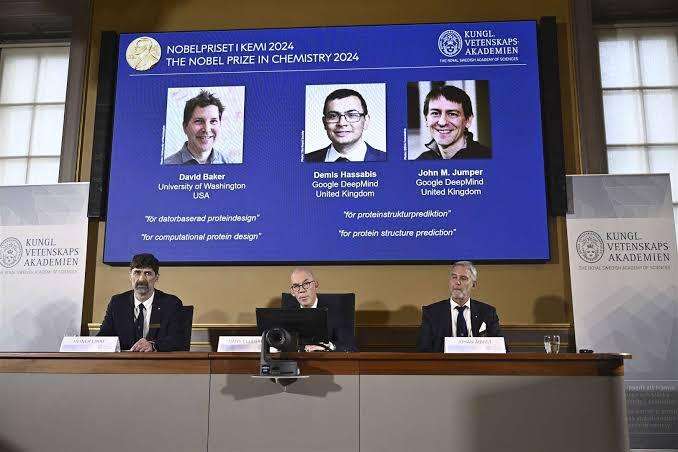After receiving the Nobel Prize in Chemistry, British computer scientist Sir Demis Hassabis cautioned that artificial intelligence could be "used for harm" in the wrong hands.
Alongside American John Jumper, a senior research scientist at the business, Sir Demis, 48, who established the London-based artificial intelligence start-up DeepMind, was awarded the accolade for their "breakthrough" work on proteins.
He characterised AI as a "very powerful" and "dual-purpose" technology that has "extraordinary potential to be one of the most beneficial technologies for humanity" but can also "be used for harm" by "bad actors" in a second news conference following the announcement.Sir Demis said: “We have to really think very hard – as these systems and techniques get more powerful – about how to enable and empower all of the amazing benefits and good use cases whilst mitigating against the bad use cases and the risks.”
He said while today’s AI systems are not dangerous, that might change in the future as these technologies get more advanced and acquire “human level” intelligence.
Sir Demis said: “We are going to have to be more and more cognisant of these risks and we need to start the research on that in a really big way so that we are prepared for that.”
Along with Dr Jumper, Sir Demis contributed to the development of an AI model which helped solve one of biology’s biggest mysteries that has puzzled scientists for more than five decades: how do protein structures form?
They share the Nobel prize with David Baker, of the University of Washington, who pioneered the method for designing proteins.
In 2020, Sir Demis and Dr Jumper presented AlphaFold2, the AI model the company had developed to help predict the complex structures of proteins.
Since the 1970s, scientists around the world have been trying to work out how a protein folds into a unique three-dimensional shape.
Since their breakthrough, AlphaFold2 has been used by more than two million people from 190 countries.
The hope is that knowing how proteins – the building blocks of life – work will help pave the way for development of novel drugs to treat diseases such as cancer, dementia and even Covid-19.
Sir Demis said it was “an unbelievable honour of a lifetime to receive the Nobel Prize”.
He said: “I’ve dedicated my whole life to advancing AI, because I really believe in the potential it has to improve the lives of billions of people.
“When we look back on on AlphaFold, it will be the first proof point of AI’s incredible potential to accelerate scientific discovery.
“And it is that potential that really got me into AI in the first place.
When Sir Demis got the call regarding the award, he claimed to be having a "normal morning."
The call from the Royal Swedish Academy of Sciences came to his wife first, he claimed, in a "funny chain of events," and they were able to get through to him "just a few minutes before they announced it."
A prize sum of 11 million Swedish kronor (£810,000) is divided among the winners.








.svg)


